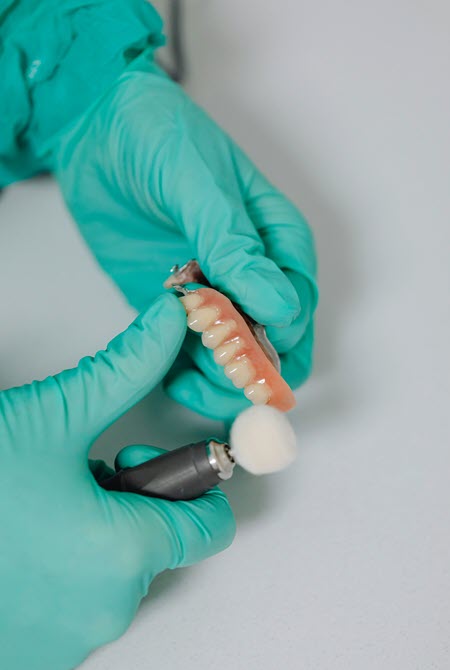Living in Camden means having access to a vibrant community, delicious local eats, and of course, a wealth of healthcare professionals. But when it comes to your oral health, finding a Camden dentist you trust and scheduling regular check-ups is just as important as visiting your doctor.
Think of your teeth as the gatekeepers to your overall well-being. They play a vital role in speaking, chewing, and digestion. Just like any other essential part of your body, they require regular maintenance to stay healthy and strong. That’s where regular dental check-ups come in.
This blog post will delve into the many reasons why scheduling those biannual appointments with your Camden dentist is crucial, not just for a sparkling smile, but for your overall health as well.
The Silent Threat: Early Detection of Dental Problems
Imagine this: you’re enjoying a delicious Camden market burger, savoring every bite. Suddenly, a sharp pain jolts through your jaw. This scenario, unfortunately, is a reality for many who neglect regular dental check-ups.
The truth is, that many dental problems, like cavities and gum disease, often develop silently, with minimal to no symptoms in the early stages. By the time you experience pain or discomfort, the issue might have progressed significantly, requiring more complex and expensive treatment.
Dr. Kenneth Carson, a leading dentist in Camden, emphasizes the importance of early detection: “Regular check-ups allow us to identify potential problems early on when they’re easiest and most affordable to treat. Think of it like catching a small tear in your favorite shirt before it becomes a giant rip.”
During a routine check-up, your Camden dentist will conduct a thorough examination of your teeth and gums. This includes:
• Visual Examination: This comprehensive assessment goes beyond just looking for cavities. Your dentist will meticulously examine your teeth for:
o Signs of decay: Early detection of cavities allows for minimally invasive treatment options like fillings.
o Cracks or chips in teeth: These can be a cosmetic concern but can also leave teeth vulnerable to further damage or infection.
o Tooth wear: Over time, teeth can wear down due to grinding, clenching, or acidic foods. Identifying wear patterns allows your dentist to recommend preventative measures or treatment options like crowns.
o Gum recession: This is the gradual shrinking of gum tissue, which can expose the root surface of the teeth and increase the risk of gum disease.
o Signs of gum inflammation: Redness, swelling, or bleeding gums can be early indicators of gingivitis, the mildest form of gum disease. Early detection and treatment can prevent gingivitis from progressing into more serious gum disease.
• X-rays: These are a valuable tool that provides a panoramic view of your teeth and jawbone. X-rays can reveal:
o Hidden cavities: Some cavities develop between teeth or beneath the surface and may not be visible during a visual exam. X-rays help identify these hidden threats to your oral health.
o Bone loss: Gum disease can lead to bone loss in the jaw, which can compromise the stability of your teeth. X-rays allow your dentist to monitor bone health and intervene if necessary.
o Impacted teeth: These are teeth that are unable to erupt properly through the gums. X-rays can help identify impacted wisdom teeth or other unerupted teeth.
o Abscesses: These are pus-filled infections that can develop in the root of a tooth. X-rays can help detect abscesses before they cause significant pain or damage.
• Oral Cancer Screening: Early detection of oral cancer is crucial for successful treatment. During a routine check-up, your dentist will:
o Examine your lips, tongue, cheeks, and the roof and floor of your mouth for any abnormalities such as lumps, bumps, or discoloration.
o Feel the lymph nodes in your neck for any swelling.
The Power of Prevention: Keeping Your Smile Healthy
Just like a good offense is the best defense in football, a proactive approach to dental care is essential for maintaining a healthy smile. Regular check-ups with your Camden dentist allow for preventive measures to be taken, stopping problems before they start.
Here’s how:
• Professional Cleanings: Brushing and flossing are the cornerstones of good oral hygiene, but they can’t reach every nook and cranny. During a professional cleaning, your Camden dentist will utilize specialized tools and techniques to remove:
o Plaque: This sticky film is a breeding ground for bacteria that can cause cavities and gum disease. Even the most diligent brushing might miss stubborn plaque buildup, particularly near the gum line and between teeth.
o Tartar (calculus): If plaque isn’t removed, it hardens into tartar, a mineralized deposit that clings tenaciously to teeth. Tartar is much harder to remove than plaque and requires professional cleaning tools. Regular cleanings prevent tartar buildup and the associated risk of cavities and gum disease.
• Fluoride Treatments: Fluoride is a mineral that strengthens tooth enamel, the hard outer shell of your teeth. Enamel protects teeth from decay, but it can weaken over time due to acidic foods and drinks. During a check-up, your dentist can assess your risk for cavities and recommend a topical fluoride treatment if needed. Fluoride treatments can be applied in various forms, including rinses, gels, or even varnishes painted directly onto teeth.
• Personalized Advice: Every smile is unique, and a one-size-fits-all approach to oral care doesn’t work. Your Camden dentist will take the time to understand your individual needs and concerns. Here’s how personalized advice can benefit your oral health:
o Brushing and Flossing Techniques: Many people brush and floss incorrectly, leaving areas vulnerable to plaque buildup. Your dentist can demonstrate proper brushing and flossing techniques tailored to your specific smile, ensuring you effectively clean all tooth surfaces.
o Dietary Recommendations: What you eat and drink plays a significant role in oral health. Your dentist can provide personalized advice on dietary choices that promote a healthy smile. This might include limiting sugary drinks and acidic foods, which can erode tooth enamel, and incorporating foods rich in calcium and vitamin D for strong teeth and bones.
o Product Selection: The dental hygiene aisle at the supermarket can be overwhelming. Your dentist can recommend the best toothpaste, floss, and mouthwash for your specific needs, considering factors like gum sensitivity or your risk for cavities.
Beyond the Smile: The Link Between Oral and Overall Health
For many years, oral health was often seen as separate from overall health. However, mounting research reveals a clear connection between the two. Studies have shown that neglecting oral health can increase the risk of developing chronic conditions like heart disease, diabetes, and even Alzheimer’s disease.
Here’s how regular dental check-ups contribute to your overall well-being:
• Early detection of systemic diseases: Your mouth isn’t just an isolated compartment; it’s a window into your overall health. During a dental exam, your Camden dentist is trained to look for subtle signs and symptoms that might indicate underlying health problems. For example:
o Diabetes: People with uncontrolled diabetes are more susceptible to gum disease. Conversely, gum disease can make it harder to control blood sugar levels. A dentist may notice signs of gum inflammation or uncontrolled diabetes during a routine check-up, prompting them to recommend further evaluation by your doctor.
o Anemia: This condition can cause a pale inner lining of the mouth or a swollen tongue. Identifying these signs during a dental exam can lead to earlier diagnosis and treatment of anemia.
o Heart disease: Studies suggest a link between chronic gum disease and an increased risk of heart disease. Regular dental check-ups can help identify and manage gum disease, potentially reducing the risk of heart complications.
• Reduced inflammation: Gum disease is a chronic inflammatory condition triggered by an overactive immune response to harmful bacteria in plaque. This inflammation can damage gum tissue and bone, eventually leading to tooth loss. However, the effects of gum disease inflammation aren’t limited to the mouth. Research suggests that chronic inflammation throughout the body can contribute to various health problems, including:
o Heart disease: Inflammation can damage blood vessels and increase the risk of heart attack or stroke.
o Arthritis: Chronic inflammation is a hallmark of rheumatoid arthritis.
o Certain cancers: Inflammation can play a role in the development of some cancers.
Regular dental care, including professional cleanings and treatment for gum disease, can help control inflammation in the mouth, potentially reducing your risk of developing these chronic health conditions.
• Improved immune system function: The mouth is teeming with bacteria, both beneficial and harmful. A healthy mouth maintains a delicate balance between these bacterial populations. When harmful bacteria overwhelm the good bacteria due to poor oral hygiene, it can lead to gum disease and other oral health issues. Regular dental check-ups and good oral hygiene practices help keep harmful bacteria in check, promoting a healthy oral microbiome. This, in turn, can strengthen your body’s natural defenses by reducing the overall bacterial load your immune system needs to manage. A healthy immune system is better equipped to fight off infections and keep you healthy overall.
Addressing Concerns: Dispelling Myths About Dental Check-Ups
Let’s face it, visiting the dentist isn’t always at the top of our to-do list. But understanding the value of regular check-ups can help overcome any apprehension you might have. Here are some common myths debunked:
• Myth: Dental check-ups are only necessary if you have a problem.
o Reality: As mentioned earlier, many dental issues develop silently. Regular check-ups allow for early detection and prevention of problems before they become severe.
• Myth: Dental treatments are expensive.
o Reality: Preventive care is significantly less expensive than treating advanced dental problems. Regular check-ups can help you avoid costly procedures down the line.
• Myth: Dental procedures are painful.
o Reality: Modern dentistry offers a wide range of techniques to minimize discomfort during procedures. Your dentist will discuss pain management options with you to ensure a comfortable experience.
• Myth: I brush and floss regularly, so I don’t need check-ups.
o Reality: Even with a good at-home routine, professional cleanings are essential for removing plaque and tartar buildup in hard-to-reach areas.
Finding the Right Camden Dentist for You
With so many dental practices in Camden, choosing the right one can feel overwhelming. Here are some tips to find a dentist who aligns with your needs and preferences:
• Ask for recommendations: Talk to friends, family, and even your doctor for recommendations on Camden dentists they trust.
• Research online: Many dental practices have websites that showcase their services, staff bios, and patient testimonials. Reading online reviews can also be helpful.
• Consider location and hours: Choose a dentist conveniently located near your work or home. Consider their office hours and find someone who offers appointments that fit your schedule.
• Insurance coverage: Verify if the dentist accepts your dental insurance and inquire about their payment options.
• First consultation: Many dental practices offer free consultations. This is a great opportunity to meet the dentist, discuss your oral health goals, and ask questions about their approach to treatment.
Taking Charge of Your Oral Health: The Takeaway
Scheduling regular check-ups with your Camden dentist is an investment in your smile and your overall well-being. These appointments allow for early detection and prevention of dental problems, promote good oral hygiene habits, and contribute to your overall health.
Don’t wait until you experience a dental emergency to prioritize your oral health. Find a Camden dentist you trust and schedule your next check-up today. Remember, a healthy smile is a happy smile!

